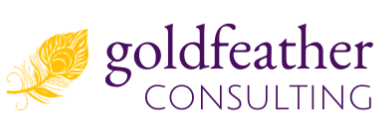Training when you need it.
Goldfeather trainings will be available as on-demand e-learning modules starting in Fall 2023.
Managing Boundaries in
Community-Based Work
A strong sense of boundaries is essential in effective community-based work. But they can be hard to manage when they’re so easily blurred by the nature of the work.
Using common examples participants will recognize, this training helps develop skills for navigating a variety of challenging situations with confidence, compassion, and consistency.
Caring for Ourselves
and Our Communities
We can’t keep doing great community-based work if we’re constantly stressed and on the verge of burnout.
This training invites community workers to reconnect with their personal goals and values, helps them identify the warning signs of burnout, and offers practical skill-building support for preventative self-care in and out of the workplace.
Motivational Interviewing
for Non-Clinicians
In any community-based work, from direct service to professional organizing, we may struggle to help someone who resists our every attempt to support them. Motivational Interviewing can help.
This training covers not only Motivational Interviewing skills but foundational principles such as unconditional positive regard, harm reduction, active listening, and mutual support that can transform your relationship with clients and put them on the path to success.
Community Crisis Response
Without Police Intervention
Responding to crisis can feel overwhelming, but it doesn’t need to be.
Grounded in practical skill-building, this training helps participants understand what’s going on when someone’s in crisis, recognize their own crisis response style, and build confidence in providing supportive crisis response.
Understanding Hoarding
and Cluttering Challenges
(Part 1 of a 2-part series; each part can be combined with the other or stand alone as its own training.)
We all have a relationship with stuff. Break through the stigma and understand why some of us have such a hard time letting things go.
Learn about the context and history of Hoarding Disorder; what is and isn’t clutter; the impact of shame and stigma on outcomes; and how to overcome common barriers to support.
Creating Harm Reduction
Plans for Clutter
(Part 2 of a 2-part series; each part can be combined with the other or stand alone as its own training.)
Cleanouts don’t work, and addressing clutter shouldn’t be all-or-nothing.
Learn principles of harm reduction in the context of hoarding and cluttering challenges, and how to apply them so you or the person you’re supporting can maintain and enjoy their living environment.
Healing-Centered Engagement
It’s important to acknowledge the reality of trauma; but over-emphasizing it may hurt more than it helps.
This training balances the need to validate trauma and honor its survivors with the recognition of resiliency and the reality of post-traumatic growth, giving community members not only the chance to survive post-trauma, but to thrive.
Supporting LGBTQ+ Youth
Confused about gender identities? Overwhelmed by pronouns? We’ve got you covered.
Our starting point for this queer and trans-led training is that each person is the expert on their own experience; from there, we’ll help you navigate how to support LGBTQ+ youth in authentic, culturally-responsive ways.
Mental Health Speakers Bureau
Training Series
Sharing our personal stories not only raises awareness about mental health; it also reduces stigma, builds confidence, creates connection, and promotes positive self-image. By the end of this comprehensive 2-day curriculum, participants will be able to share a 10-minute draft of their story.
Modules include self-disclosure; role of the peer educator; principles of stigma elimination; recovery language; story structure; public speaking skills; and self-care.
